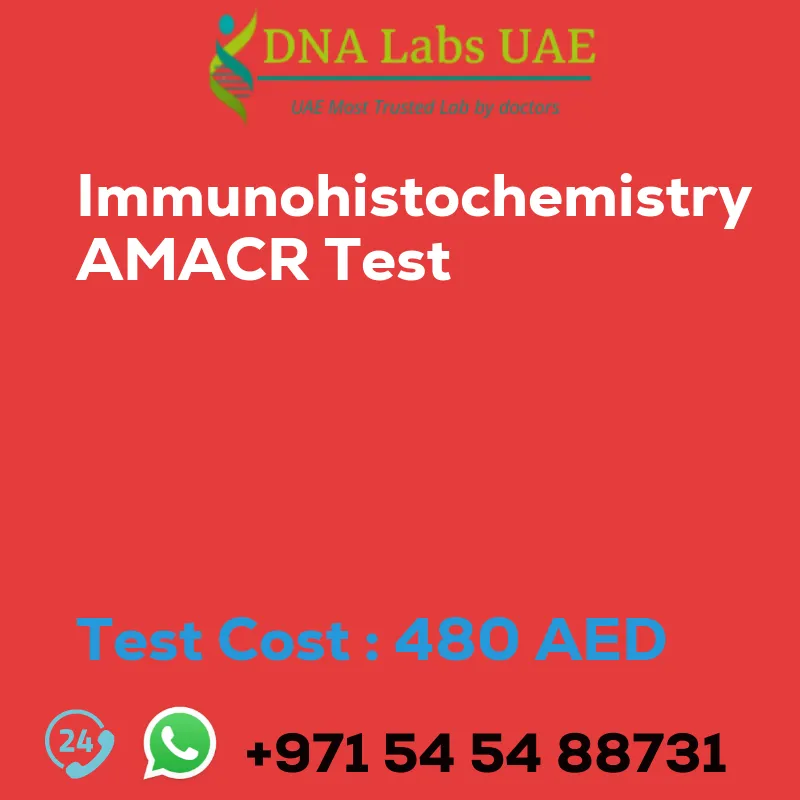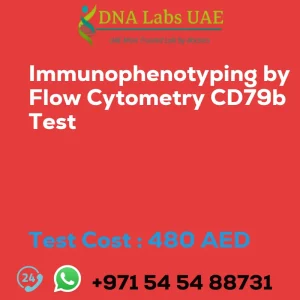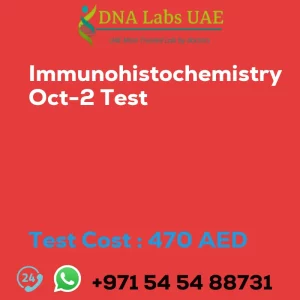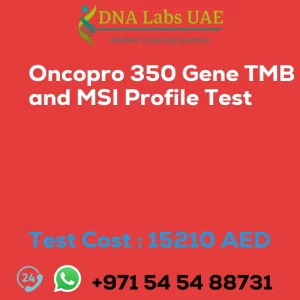IMMUNOHISTOCHEMISTRY AMACR Test Cost AED:480.0 Symptoms Diagnosis
Welcome to DNA Labs UAE, your trusted genetic lab for accurate and reliable testing. In this blog, we will discuss the IMMUNOHISTOCHEMISTRY AMACR Test, its cost, symptoms, diagnosis, and the role it plays in detecting and managing prostate cancer.
Test Name: IMMUNOHISTOCHEMISTRY AMACR Test
Components: AMACR protein
Price: 480.0 AED
Sample Condition
Please submit tumor tissue in 10% Formal-saline or Formalin fixed paraffin embedded block. Ship the sample at room temperature. Additionally, provide a copy of the Histopathology report, site of biopsy, and clinical history.
Report Delivery
Sample: Daily by 6 pm
Report Block: 5 days
Tissue Biopsy: 5 days
Tissue large complex: 7 days
Method
Immunohistochemistry
Test Type
Cancer
Doctor
Oncologist
Test Department
Pre Test Information: Provide a copy of the Histopathology report, site of biopsy, and clinical history.
Test Details
The AMACR (alpha-methylacyl-CoA racemase) test is an immunohistochemistry (IHC) test used in pathology to detect the presence of AMACR protein in tissue samples. AMACR is an enzyme involved in fatty acid metabolism and is overexpressed in certain types of cancer, including prostate cancer.
The AMACR test is primarily used to aid in the diagnosis of prostate cancer, especially in cases where the cancer is difficult to distinguish from benign prostate tissue. It can also be used to determine the aggressiveness of the cancer and guide treatment decisions.
During the AMACR test, a tissue sample (usually from a prostate biopsy) is collected and processed for IHC. The tissue sample is treated with specific antibodies that bind to the AMACR protein. If the AMACR protein is present in the tissue, it will bind to the antibodies, forming a visible stain.
The stained tissue sample is then examined under a microscope by a pathologist, who can determine the presence and distribution of AMACR protein. The results of the AMACR test can help in distinguishing cancerous tissue from benign tissue and assist in making an accurate diagnosis.
Overall, the AMACR test is a valuable tool in the diagnosis and management of prostate cancer, providing additional information to guide treatment decisions.
| Test Name | IMMUNOHISTOCHEMISTRY AMACR Test |
|---|---|
| Components | |
| Price | 480.0 AED |
| Sample Condition | Submit tumor tissue in 10% Formal-saline OR Formalin fixed paraffin embedded block. Ship at room temperature. Provide a copy of the Histopathology report, Site of biopsy and Clinical history. |
| Report Delivery | Sample Daily by 6 pm; Report Block : 5 days Tissue Biopsy : 5 days Tissue large complex : 7 days |
| Method | Immunohistochemistry |
| Test type | Cancer |
| Doctor | Oncologist |
| Test Department: | |
| Pre Test Information | Provide a copy of the Histopathology report, Site of biopsy and Clinical history. |
| Test Details |
The AMACR (alpha-methylacyl-CoA racemase) test is an immunohistochemistry (IHC) test used in pathology to detect the presence of AMACR protein in tissue samples. AMACR is an enzyme involved in fatty acid metabolism and is overexpressed in certain types of cancer, including prostate cancer. The AMACR test is primarily used to aid in the diagnosis of prostate cancer, especially in cases where the cancer is difficult to distinguish from benign prostate tissue. It can also be used to determine the aggressiveness of the cancer and guide treatment decisions. During the AMACR test, a tissue sample (usually from a prostate biopsy) is collected and processed for IHC. The tissue sample is treated with specific antibodies that bind to the AMACR protein. If the AMACR protein is present in the tissue, it will bind to the antibodies, forming a visible stain. The stained tissue sample is then examined under a microscope by a pathologist, who can determine the presence and distribution of AMACR protein. The results of the AMACR test can help in distinguishing cancerous tissue from benign tissue and assist in making an accurate diagnosis. Overall, the AMACR test is a valuable tool in the diagnosis and management of prostate cancer, providing additional information to guide treatment decisions. |








